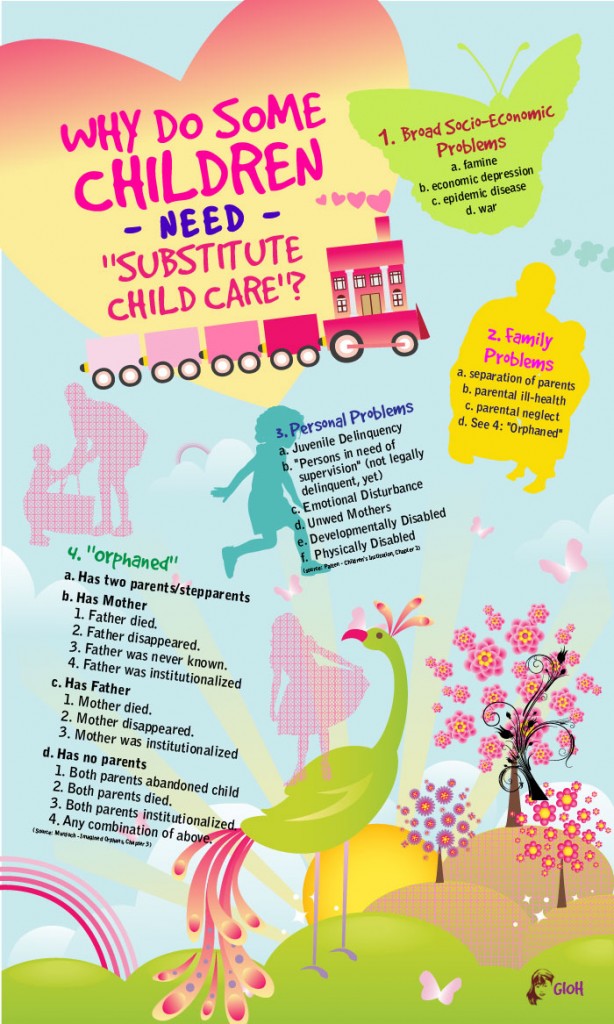Upon starting to research orphanages, every book I read quickly qualified that many of the inhabitants of orphanages throughout the ages, were not in fact full orphans. Many were half-orphans, for instance. Or my aunt told me about how many parents during the Depression used to send their children to an orphanage (or some other sort of home) for one week a month when they were unable to afford food.
Many orphanages in the 19th and 20th century were opened originally because of Cholera or some other epidemic, or after the Civil War when thousands of children were newly orphaned. During the Irish Famine, there were hundreds of thousands of children under the age of 15 in the newly-opened workhouses. After the tsunami in 2004, orphanages were opened to deal with the massive number of new orphans.
Child Services in many countries will remove a child from his/her parents if there are signs of neglect or ill-health of the parents. Even today, many parents would send a developmentally or physically disabled child to a home that is able to better care for their child than they could.
Women ashamed of being unwed mothers or mothering illegitimate children would place their babies on the stairs of churches, convents and hospitals in many countries. Interestingly enough, many of these mothers would come back and act as wet nurses for their own babies. It was like when Moses, in the book of Exodus, would only nurse from his mother while he was living in the Princess of Egypt’s house.
Wherever the children come from, for whatever the reason, they still remain in the same state of need.
Therefore, we created a very basic chart that breaks down why a child would ever need “substitute child care”. Research and analysis of each category and subcategory on this chart can fill volumes. Each child has extremely different physical and emotional needs.
It’s only a non-definitive roadmap to start understanding the plight of children in need and the institutions created to care for them.




